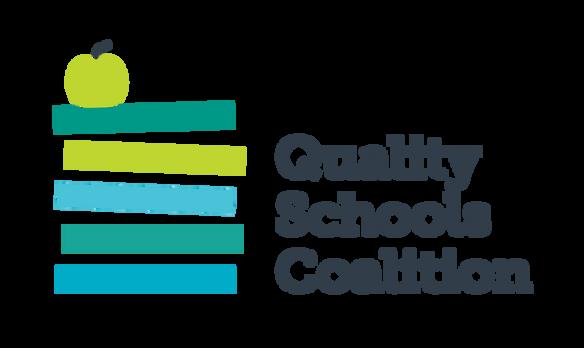
Quality Schools Coalition, October 2024


Quality Schools Coalition, October 2024
01 02 03 04 05 06
Organization Overview
Letter from Dean Johnson, CEO
Mission and Vision
Core Values
Missouri Education Landscape
Our Challenge
Strategic Priorities
Education Policy Reforms
Advocacy and Policy Impact
Quality Education Act
Charter School Funding Equity
Senate Bill 727
School Spotlight: Academy for Integrated Arts
Community Engagement
Activating a Community of Advocates
Program Highlight: Education Policy Cohort
Parent Highlight: Tiffany Price
Changing the Narrative
Financial Overview
Appendix
Staff and Board Members
References



The mission of Quality Schools Coalition is to improve education in Missouri by advocating for a policy environment in which public schools flourish.
Every student in Missouri has access to a high-quality public education.
Educationa
Create the condit high-quality publ
Honor and respec through professio strategies, and fai
Real World
Provide students them to pursue d
School Aut
Give administrato to innovate and b and dynamics
Accountab
Measure outcome ensure that data a improve school q
School Cho
Provide parents t best school for th high-quality optio

President + CEO
Dear Friends, Supporters, and Partners,

As we approach 2025 and the conclusion of our journey as an organization, I am grateful for the many people who have worked to advance this mission When Quality Schools Coalition (QSC) launched in December 2020, our goal was clear: ensure that every child in Missouri has access to a high-quality public education Today, I am proud to reflect on the impact of our effortsimproved public school funding, increased teacher pay, expanded preschool programming, and more public school choice
These successes lay the foundation for our children - today and in the future - to achieve excellence in school and beyond
Thanks to you, and the unwavering commitment of many other parent advocates, partner organizations, state legislators and grassroots champions of education reform, Missouri's education policy framework is greatly improved QSC is honored to have worked alongside each one of you in these endeavors. Your dedication to Missouri's children and families has inspired us every step of the way
Although QSC is drawing to a close in December of this year, the work of strengthening educational opportunities and outcomes for all children in Missouri must continue While significant progress has been made, many children in Missouri still lack access to a high-quality education and despite recent investments, Missouri's financial commitment to public education remains below the national average. We are heartened to know that you and many other education champions are carrying this work forward
Thank you again for your support of QSC, your dedication to Missouri's children, and your belief that great things happen when we work together It has been an extraordinary privilege to serve alongside you, and I look forward to the ongoing progress
With deepest appreciation,
Dean Johnson President + CEO

32nd
Missouri’snational rankingin8thgrade readingproficiency
Missouri’spolicyframeworkforK-12educationdoes notcreatethenecessaryconditionsforourpublic schoolstoflourish.Asaresult,manychildrenin Missourilackaccesstohigh-qualitypubliceducation.
Missouristudentsare readingproficiently
Missouri’sacademicoutcomesare belowthenationalaverageand decliningsince2009.Significant achievementgapsbasedonrace andincomepersist
28th
Missouri’snational rankingin8thgrade mathproficiency
Despitethis,99%ofMissouri'sschool districtsare"FullyAccredited" 28% percentageof Missouri8thgraders proficientinreading
percentageof Missouri8thgraders proficientinmath
Source: National Assessment of Educational Progress (NAEP) The Nation’s Report Card (2022)
37th
Missouri ranks 37th nationally for annual per-student expenditures
$12.6k $15.6k
U.S. average annual spend per student MO average annual spend per student

Missouri ranks 46th nationally for average teacher pay
$53k $66k
U.S. Average Teacher Salary Missouri Average Teacher Salary
Sources: United States Census Bureau (2022) and National Center for Education Statistics (2022)

Given these challenges, QSC has organized our work around three strategic priorities:
Missouri must revise its public school accountability system to ensure that school performance ratings are based on student growth, academic achievement, college/career readiness and high school graduation rate, and that information about school performance is clear and easily accessible online for parents and other education stakeholders
Missouri now funds charter schools equitably, but our public school funding mechanism still needs to ensure that Missouri is a Top 20 state for 1) Total per pupil expenditures, 2) Average teacher pay and 3) Supplemental funding for low-income students.
Missouri should join a growing number of states that allow students to enroll in a school district where they do not live, provided there are seats available, and expand charter schools to more communities throughout the state
In the decade preceding 2020, significant victories in education reform were few and far between in the Show Me State. However, over the last four legislative sessions - even while other major public policy issues were mired in gridlock - lawmakers made historic improvements to Missouri's education policy framework, including the following:
Doubled the number of publicly funded preschool seats in Missouri.
Increased minimum teacher pay from $25,000 to $40,000, and increased the pay scale for experienced teachers with advanced degrees
Passed charter school funding equity, increasing average annual funding for urban education by $75 million.
Expanded charter school opportunities to Boone County
Created the Missouri Empowerment Scholarship Accounts Program that supports low and middle income families to afford a private education
Created a more equitable calculation for school funding, which will increase public education funding by $227 million annually when fully implemented.
Expanded alternative pathways to gain a teacher certification
Appropriated billions in federal education funds to local Missouri schools during and following the pandemic
Increased student transportation funding by $250 million annually, an increase of over 300%.
Passed legislation allowing differentiated teacher pay, which incentivizes teachers to fill positions in hard-to-staff subjects and schools
Defeated attempts to pass curriculum bans and other teacher restrictions that are hurting many other states.
Even with all of this progress, much work remains To continue making improvements for our children, we must remain steadfast in supporting candidates for the Missouri House and Senate who support these much needed reforms:
Expand charter schools into more Missouri communities
Allow students to open enroll in a neighboring school district if a seat is available
Provide more supplemental funding for low-income students
Significantly increase per pupil funding to bring Missouri up to the national average
Revise the public school accountability system to measure what matters - academic growth and achievement
Make information about school performance clear and easily accessible on the state's website, and each school's website.
Support struggling schools with proven interventions and oversight
Continue to increase teacher pay to meet or exceed the national average
Change is never easy The status quo is one of the most powerful forces standing between our students and better schools. The good news is that a much-improved education reform ecosystem has been built over the past four years in Jefferson City and in communities across this state
Engaged parents are now traveling to Jefferson City on a regular basis to speak with lawmakers and deliver testimony in committee hearings. They are writing letters to the editor of their local paper and posting important information on their social media platforms. QSC is honored to work with the many parents and other changemakers who ensure that legislators have a true understanding of the dreams and expectations of the students and families back home in their districts.
These grassroots advocacy efforts are changing the narrative in Jefferson City, and changing what is possible for public education in Missouri Our children deserve a world class education and QSC applauds our partners ActivateSTL, Revolución Educativa, Aligned, Parent Leadership Training Institute and all of the other advocacy groups and individuals who continue to insist on nothing less.


The Quality Education Act was QSC’s priority legislation in 2023 and 2024. The goal of this legislation was to improve how Missouri measures school success, makes information available to parents, and supports schools that are struggling.
In the decade preceding the pandemic, student achievement in Missouri declined relative to other states. The pandemic exacerbated this situation for Missouri students. Since 2009, Missouri’s 8th grade reading proficiency level on the National Assessment of Educational Progress (NAEP) has dropped from 17th nationally to 32nd, and Missouri’s
8th grade math proficiency level on the NAEP has dropped from 22nd nationally to 28th
Despite these facts, virtually all Missouri school districts are fully accredited including many that are well below state averages for student growth and achievement. Additionally, Missouri's Department of Elementary and Secondary Education (DESE) publishes report cards for charter schools and school districts on its website, but these are difficult to find and interpret
The Quality Education Act would greatly improve a broken system with three key measures:
For elementary schools, half of the school performance rating should be based on student growth and half on student achievement and other measures of success. For high schools, student growth and college/career readiness should make up half of the school performance rating and half should be based on student achievement and graduation rate Currently, these critical measures are under-valued in Missouri, which over emphasizes administrative paperwork and compliance
All public schools should receive a report card that describes how the school compares with statewide outcomes in student growth, achievement, college/career readiness, and graduation rate. The report cards should be easy to find on the state's website and the school's website. The information should be clearly defined and organized for parents and community members to understand how schools are performing
Missouri must ensure that struggling schools have adequate resources to develop and implement school improvement plans through the School Turnaround Act
Our goal of passing The Quality Education Act into law fell short. However, our efforts successfully highlighted shortcomings in the current system, the need to place greater emphasis on student outcomes and to create a more transparent system for communicating school performance to parents and other community members We are confident that this momentum will continue to grow and result in positive changes in the years ahead
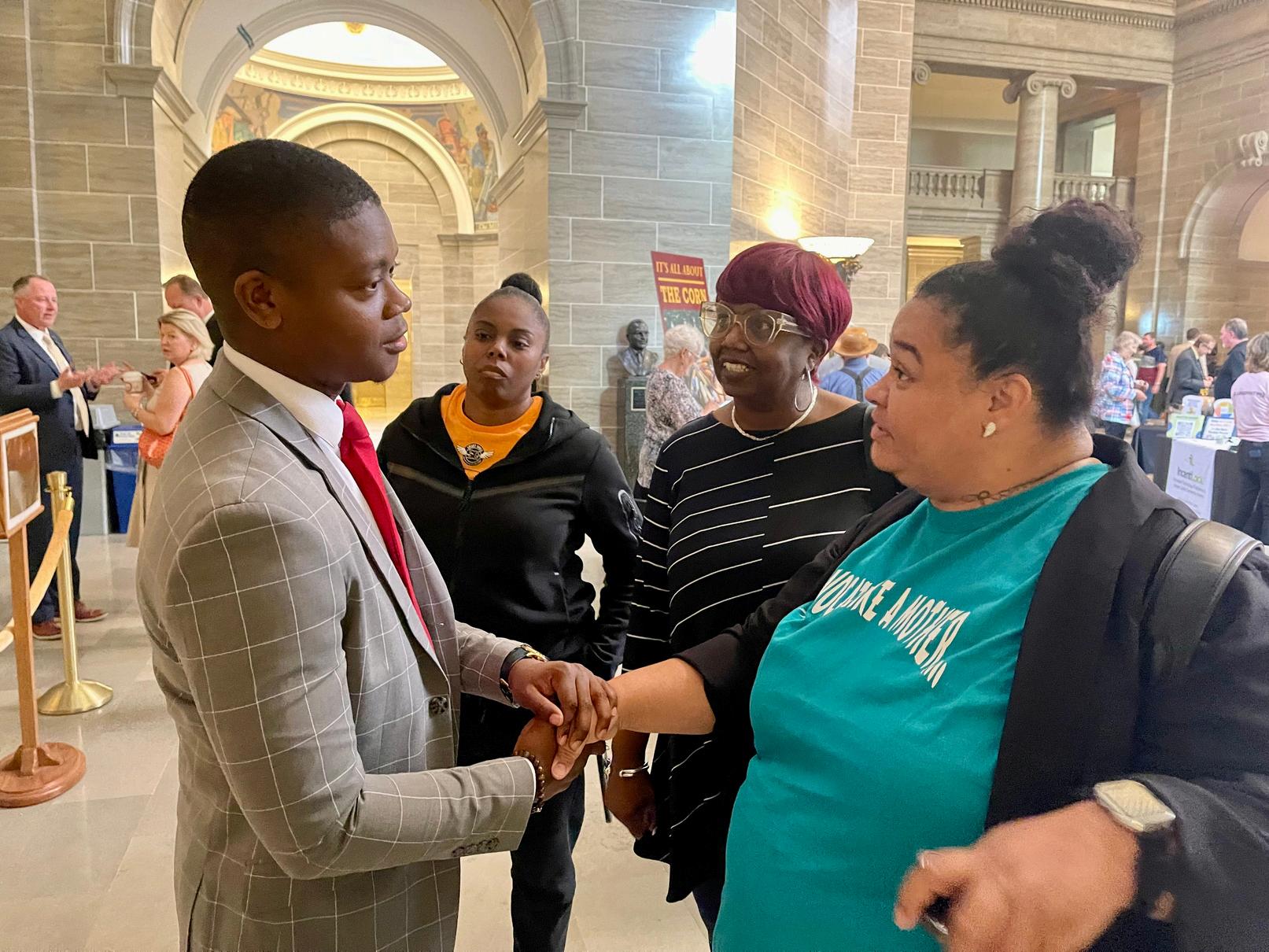
Charter schools throughout the country understand the challenge of inequitable funding School leaders must fundraise and operate lean budgets to close gaps, and policy advocates hit a wall of entrenched interest groups in their state capitals. This was the story in Missouri for several years. But in 2022, the persistence of parents, school leaders, and education reform advocates succeeded when Governor Mike Parson signed House Bill 1552 - a historic, bipartisan solution for charter school funding equity
Missouri now funds charter schools at the same level as the local school district In Kansas City and St. Louis, the new law has generated $150 million in additional resources during the initial two years of implementation.
$68Million
$81Million
2023 Increase in Funding 2024 Increase in Funding
State Representative Doug Richey
“Making sure that a high-quality education is available to all families, no matter their zip code, is a critical function of a thriving society As I worked with other legislators to pursue this goal, QSC consistently demonstrated subject matter expertise and professional engagement, which was essential in our successful effort to pass charter school funding equity ”

The previous inequity resulted from an antiquated formula for distributing local tax dollars between school districts and charter schools The impact of this glitch was that charter school funding was largely based on 2005 property taxes, while school districts were funded with current property taxes, which had increased significantly since 2005.
In 2019 legislation was filed to fix this legislative glitch, but it faced stiff resistance from charter school opponents Prior to the 2020 legislative session, charter school parents contacted their legislators, charter school administrators met with school district officials, and legislation was rewritten to address concerns. The new bill began moving quickly, but COVID interrupted the legislative session and lawmakers shifted their attention to emergency response efforts.
QSC launched in December 2020 and adopted charter school funding equity as our top priority Our efforts added to the existing momentum and funding equity passed through the House, and sailed through the Senate Education Committee Sadly though, the bill never reached the Senate floor due to filibuster threats from charter school opponents.
Heading into the 2022 legislative session, QSC and other education reform groups agreed that charter funding equity was the top priority Representative Doug Richey filed House Bill 1552, which again passed through the House and the Senate Education Committee Charter school students were on the cusp of fair funding, but the filibuster threat still hung in the air until a compromise proposal emerged
For three years, charter advocates explained how the existing law was unfair, while opponents disputed the inequity and fought any change that would shift funding away from school districts. The compromise emerged when opponents began to acknowledge the inequity “We understand that charter schools deserve fair funding," they said "Just don’t take it from us”
This shift – however slight – opened the door to a complete rewrite of the bill. In the new version, school districts retain the same funding formula, and the state adds new dollars to fund the charter school gap. The bipartisan compromise passed the Senate 29-5 and the House 116-29.
In an op-ed published in Missouri newspapers after funding equity was signed into law, QSC President Dean Johnson wrote, “It should also serve as a template for the path forward, a shining example of how when parents, teachers, advocates, activists, administrators and elected leaders come together in collaboration, the real winners are our kids."

In May 2024, Gov. Mike Parson signed Senate Bill 727, an Education omnibus bill that brings new education investments to Missouri and directly leads to better paid teachers and better prepared students
By doubling the number of publicly funded preschool seats, the governor and legislative leaders are enhancingearlychildhoodeducationstatewide,whichresearchshowscorrelateswithincreasedhigh schoolgraduationratesandreducedspecialeducationneeds.
By permanently raising the minimum teacher salary from $25,000 to $40,000 and adjusting the pay scale for experienced teachers with advanced degrees, our schools can attract and retain top talent, whichdirectlyimprovesthequalityofeducationourchildrenreceive
Here’s a breakdown of how Senate Bill 727 is set to improve the quality of education in Missouri:
Senate Bill 727 raises the minimum teacher salary from $25,000 to $40,000 and provides funding support to help schools achieve this target It also adjusts pay scales for experienced teachers with advanced degrees, and will adjust with inflation going forward Additionally, the adoption of differentiated teacher pay policies recognizes the need to incentivize teachers to fill positions in hard-to-staff subjects or schools, promoting equity and excellence in education.
Senate Bill 727 doubles the number of publicly funded preschool seats available to lower-income families, offering a crucial opportunity to enhance early childhood education statewide. Students enrolled in preschool are 14% more likely to graduate from high school and have a 10% lower rate of being placed in a special education program This opportunity should be available to all Missouri families regardless of personal income
Presently, Missouri funds schools based on student attendance rates which often results in underfunding schools that serve a high percentage of lower income students With the passage of Senate Bill 727, Missouri will count total student enrollment in addition to average daily attendance when calculating funding for each school. This revision brings Missouri in line with other states, and will increase total public school funding by $227 million when fully implemented.
Establishing an online teacher preparation program and streamlining the certification process for individuals who have already earned a college degree expands opportunities for people to join the teaching profession, removes barriers to entry, and improves access to teacher training opportunities.
The expansion of charter school opportunities in Boone County represents a significant step towards increasing public school choice and innovation.
State Representative Marlene Terry, speaking about her grandson’s influence on her vote for SB727
"We had to make sure he had the best education possible, and I was going to make sure I did whatever we could to make that happen, just like I do for every child in the state of Missouri Parents should be able to have choices as to how and when and where their children are taught."

From charter school funding equity to The Quality Education Act and preschool expansion, we learned some valuable lessons during these multi-year advocacy efforts:
1
Parent engagement is critical
When it comes to improving education policy in Missouri, there is nothing more important than parents communicating directly with legislators Parent advocates working in collaboration with QSC and other education reform organizations were the difference makers in passing major legislation
3
Engage constructively with opponents
QSC works to build common ground with legislators and organizations that are not aligned with education reform initiatives We believe that bipartisan policies will be more durable and have greater impact long-term Deliberations that appear deadlocked for months, or even years, may eventually break through and produce legislation that achieves a comprehensive set of policy objectives
2
Establish a consensus priority
Missouri's education policy framework is lacking in several areas and each education reform organization has its own set of priorities Everyone will not achieve all of their priorities all at once As an education reform coalition, we are most successful when we establish a consensus priority, work cohesively and articulate a unified message throughout the capitol
4
It’s going to be a long haul
The status quo is powerful in Missouri Killing legislation is always easier than passing needed education reforms Even when a policy makes sense, is backed up by data, and is popular, change is never quick or easy Every parent phone call, legislator meeting, and committee hearing is a necessary step in the long journey of improving educational opportunities for Missouri's children
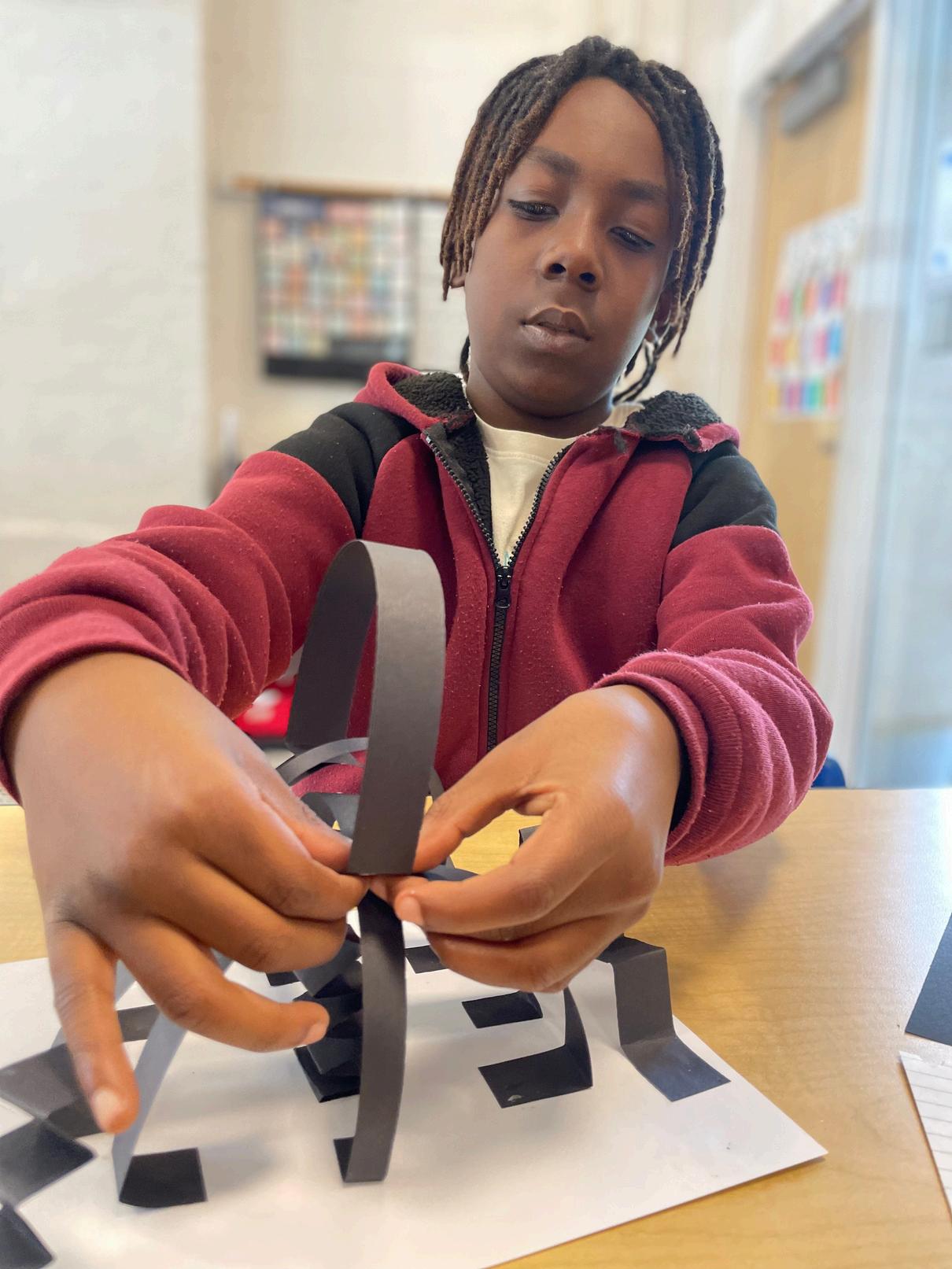
The 2022 passage of the Charter Funding Equity bill was a game-changer for Missouri charter schools. This groundbreaking legislation, which ensured equitable funding for charter schools across the state, was more than a policy shift it was a lifeline that gave innovative institutions like the Academy for Integrated Arts (AFIA) in Kansas City the opportunity to flourish. For years, schools like AFIA had operated with limited resources, while their district school peers received significantly more per-pupil funding With the new legislation finally creating financial parity, AFIA was able to implement innovative strategies that have had a transformative impact on their learning environment, curriculum, and teacher satisfaction and retention.
Established in 2012, AFIA is a tuition-free public charter school that serves pre-K through 6th grade students in Kansas City. Students use the arts - dance, music, visual art, and theater - as a way to learn core academic subjects This fusion of art with academics sparks the imagination and challenges the intellect, preparing students for vibrant, successful lives in secondary school and beyond
Using the Kennedy Center definition of arts integration, which is “an approach to teaching in which students
construct and demonstrate understanding through an art form,” students engage in a creative process that connects an art form and another subject area to meet evolving objectives in both. AFIA’s Executive Director, Dr Tricia DeGraff shared, “We believe that children learn more deeply when they engage in the arts as part of the core curriculum.”
With additional funding, AFIA invested in a revolutionary team-teaching model designed to address one of the biggest challenges facing education today: teacher burnout and shortages DeGraff shared a takeaway from partners at Arizona State University, “We don’t have a teacher shortage, we have a workforce design problem.” Rather than relying on a single teacher to meet the diverse needs of a classroom, AFIA adopted a model that brings together three certified teachers and an apprentice teacher to collaboratively manage one larger classroom of students
This new approach, designed in partnership with ASU, allows teachers to share leadership responsibilities, distribute their expertise, and foster a more efficient and enriching learning environment By working as a team, teachers are better supported, which not only improves their job satisfaction but also enhances student outcomes

The model breaks the traditional mold and challenges the common assumption that classrooms need to be led by just one teacher a system that often leaves educators overworked and under-resourced.
DeGraff also attributed the pressures of standardized testing as one of the main challenges facing public schools, and as a result, she believes teachers are forced to teach skills in a de-contextualized setting, one that lacks the ability to intellectually engage children.
Thanks to charter funding equity, AFIA also invested in design thinking training and implementation, further enhancing their Project-Based learning approach.
At AFIA, education is driven by children’s natural curiosity Students' questions and interests guide the learning process, becoming a core part of the curriculum Through this project-based, arts-integrated model, students are encouraged to think creatively, critically, and collaboratively, equipping them with the skills they need for future success.
Without charter funding equity, these advancements would not have been possible In a time when schools across Missouri grapple with teacher shortages and retention challenges, AFIA’s team teaching model addresses these issues head-on By providing teachers with the support they need to grow professionally and personally, AFIA is not only keeping its staff but also attracting talented educators who want to be part of an innovative and collaborative school community
The story of AFIA highlights the critical importance of continued advocacy for equitable funding in education By supporting policies that give all schools the resources they need, we can foster environments where teachers thrive, students excel, and innovative ideas flourish The impact of charter funding equity cannot be overstated. Without this legislation, AFIA and all other charter schools would not have the financial means to implement such forward-thinking teaching models It’s not just about equity in funding; it’s about equity in opportunity for students and teachers alike.

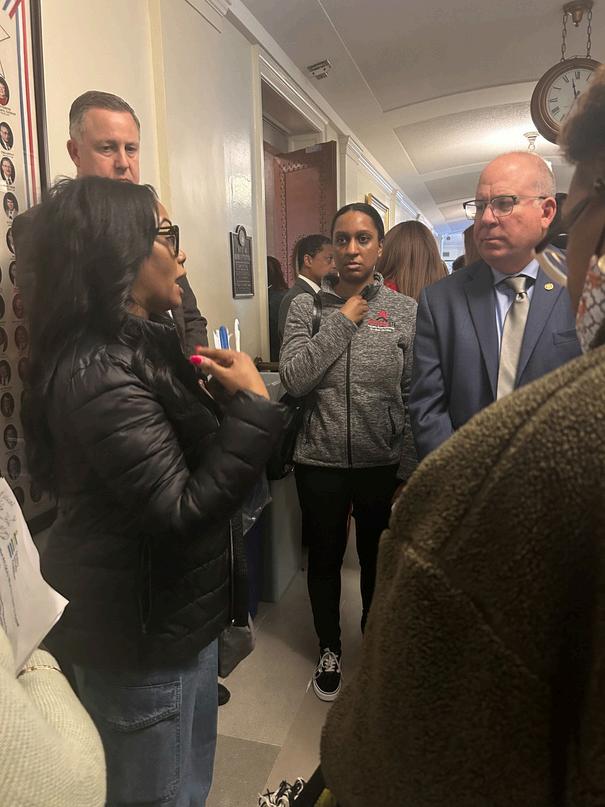
24 Parent Advocacy Cohort Members
With our partners Activate STL and Parent Leadership Training Institute
QSC created and facilitated the Parent Advocacy Cohort program. Cohort members studied Missouri's education policy landscape, data and best practices from other states and debated policy reforms that will benefit their communities. Cohort members are very engaged with state lawmakers, and we are excited about their future impact in Missouri
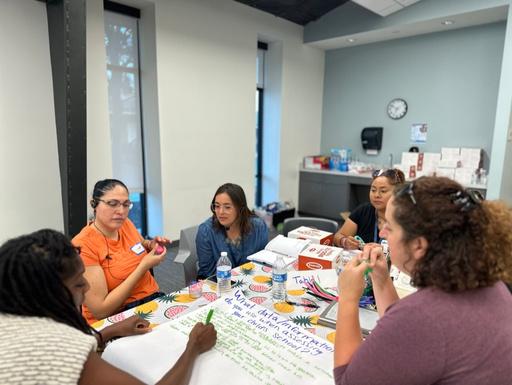
We know that in-person interactions with legislators are most impactful. However, our many QSC advocates cannot be in Jefferson City all the time. So, QSC launched an extensive email campaign to engage legislators on key issues. In 2024 alone, QSC advocates sent over 1,500 emails urging lawmakers to support our legislative priorities.
In 2024, QSC advocates showed up in a big way, with several organized visits to Jefferson City from across the state. Their voices were heard, and they were impactful, meeting with legislators and testifying in committee hearings in support of Senate Bill 727 and The Quality Education Act

QSC believes in the power of individuals to affect meaningful change in their communities. Our parent advocacy work, including information sessions regarding our legislative priorities and advocacy days in Jefferson City, empowers parents to directly impact the quality of education in Missouri. Tiffany Price is a shining example of this empowerment in action
As a mother deeply invested in her children’s education, Tiffany joined the inaugural parent cohort offered by the Parent Leadership Training Institute (PLTI) and soon became an
impactful voice in the Missouri state capitol Her advocacy, passion for education reform, and desire to improve school choice led her on an inspiring journey one that culminated in her recent election to the Missouri House of Representatives
In this Q&A, Tiffany reflects on her experiences as a parent advocate, shares what motivated her to run for office, and offers insights all of us can use to affect change
Q: Tell us about your experience as a Parent Advocate. How did you get started?
Tiffany Price: I was a parent advocate before I even knew what that meant! It all started when my oldest son, Bryan, who’s now 21, was attending Hogan Prep One of the parent liaisons there recommended that I join the Parent Leadership Training Institute (PLTI). I was part of the first cohort in Kansas City, the class of 2019
I’ve always felt like I had a voice, but PLTI taught me how to use that voice effectively It gave me the tools and the confidence to stand up for my kids and my community in a way I didn’t know was possible.
Q: How did you get involved with Quality Schools Coalition?
Tiffany Price: I first got involved with Quality Schools Coalition a few years ago when I attended a parent information session and saw how important it was for parents to have a voice in education decisions. I wanted to help give
more parents a seat at the table, just like I had been given.
Two years ago, I went to Jefferson City with the Coalition, and honestly, I didn’t even know what a state representative was at the time! But that experience opened my eyes By the time I attended Child Advocacy Day in 2023, I had learned how to navigate the Capitol.
Q: You were encouraged to run for office during that time. How did that happen?
Tiffany Price: It was during Child Advocacy Day that one of the state representatives asked if I’d ever thought about running for office I hadn’t, not seriously But I realized I had learned so much about how things worked in Jefferson City, how to advocate, how to get involved At first, I wasn’t ready to run it wasn’t part of my plan but things happen for a reason The more I thought about it, the more I felt like the time was now.
Q: How do you think your experience as a parent advocate will shape your work as a state representative?
Tiffany Price: I’ve learned that the people closest to the issue are the ones you need to listen to As a parent advocate, I learned that whether you’re talking about education or housing, you have to engage directly with the people impacted Legislators need to talk to real people to understand the real issues That’s something I’ll carry with me into this new role.
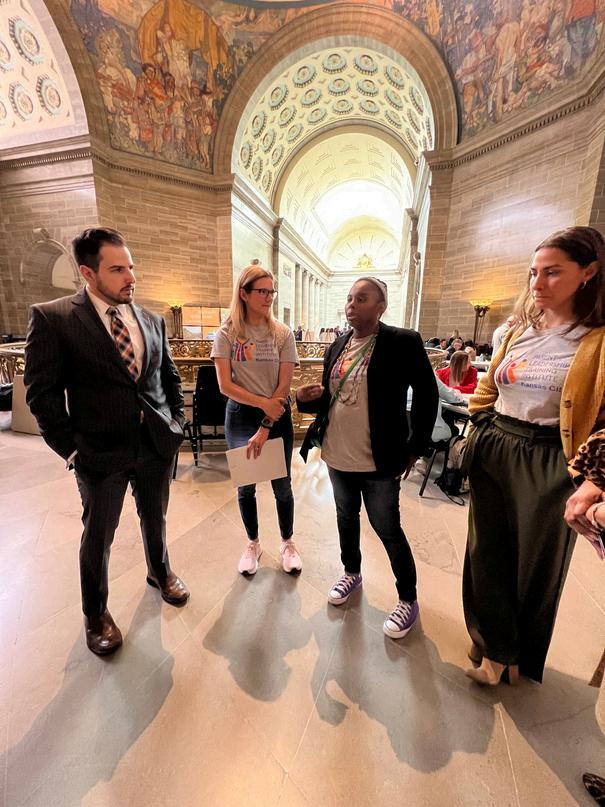
Even before running for office, my advocacy with Quality Schools Coalition helped pass a bill Parents were part of the process in a real way, and that’s what made me want to get even more involved. It showed me that our voices matter
Finally, I want to fight for people at every single level. The experience I gained through Quality Schools Coalition and as a parent advocate taught me what a lobbyist is and how everyday people can impact legislation My goal is to keep bringing in more voices and keep building that trust. I want to make sure that the people who are most affected by the issues we’re talking about are the ones shaping the solutions.
Photos courtesy of our friends at PLTI, whose mission is to train and mobilize parents to be leading advocates for children.

Understanding the intricacies of public policy is necessary for educators who are striving to be strong advocates for students, families, and the education sector at large With this in mind, QSC created the Education Policy Cohort to support education professionals who have a passion for improving the system This diverse group of teachers, school administrators and nonprofit leaders embraced this fellowship with great vigor and gained a comprehensive understanding of education policy in Missouri through a structured curriculum and hands-on advocacy experiences.
Cohort members dove into crucial policy areas such as high-quality public school choice, teacher recruitment and retention, access to early childhood education, fair and adequate funding of public schools, and effective measures for student growth and achievement. By immersing themselves in the policy landscape, cohort members gained tools and knowledge that will help them champion meaningful reforms and positively impact Missouri students and families As we strive for a more equitable and inclusive education system, it is imperative that educators are active in shaping policies that address the diverse needs of students and support the professional growth of teachers.
QSC placed a heavy emphasis on increasing public awareness and support for education reform, recruiting new messengers, and elevating positive stories through statewide awareness campaigns By developing informative content, engaging parent advocates to deliver testimony and engaging state-level audiences, the narrative continues to change in favor of needed education reforms.
Statewide Legislative Campaign Engagment
Public Display Impressions
365,000
Mobile and TV Streaming Ads
516,000
Social Media Ad Impressions
450,000
Digital Engagment
1200 Social Audience
850 Email Subscribers
Average Monthly Email Open Rate
58%

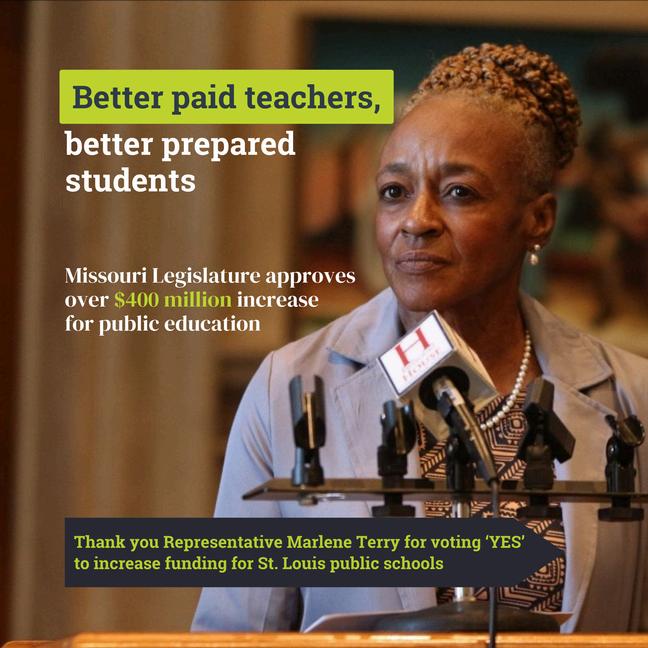
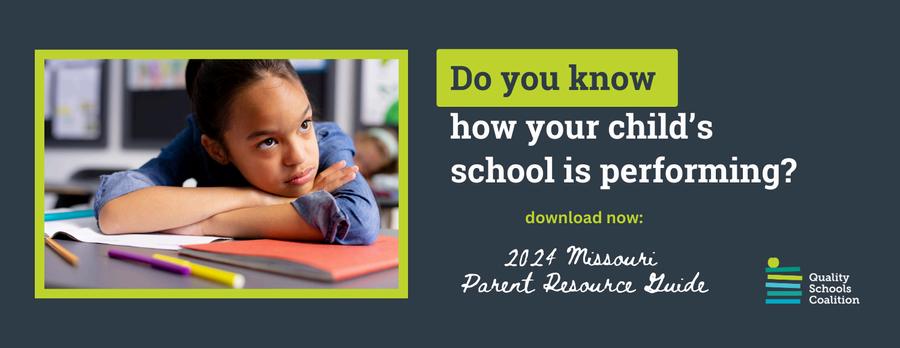
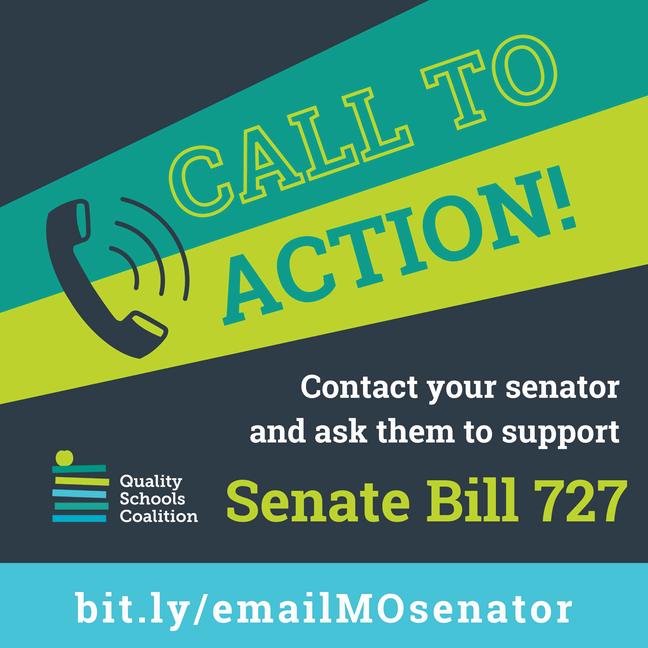


QSC is grateful to our funders who have enabled our work Our total expenditures over four years are $5,910,000, including $1,153,000 to help elect candidates who share our values of improving high-quality educational opportunities for Missouri families.
The impact of these investments is significant With our partners and legislative champions, QSC’s work has produced a permanent $75 million annual increase in charter school funding, and – when fully implemented - $450 million in new annual education investments, including teacher pay increases, expanded preschool programming, and a more equitable school funding formula
as of
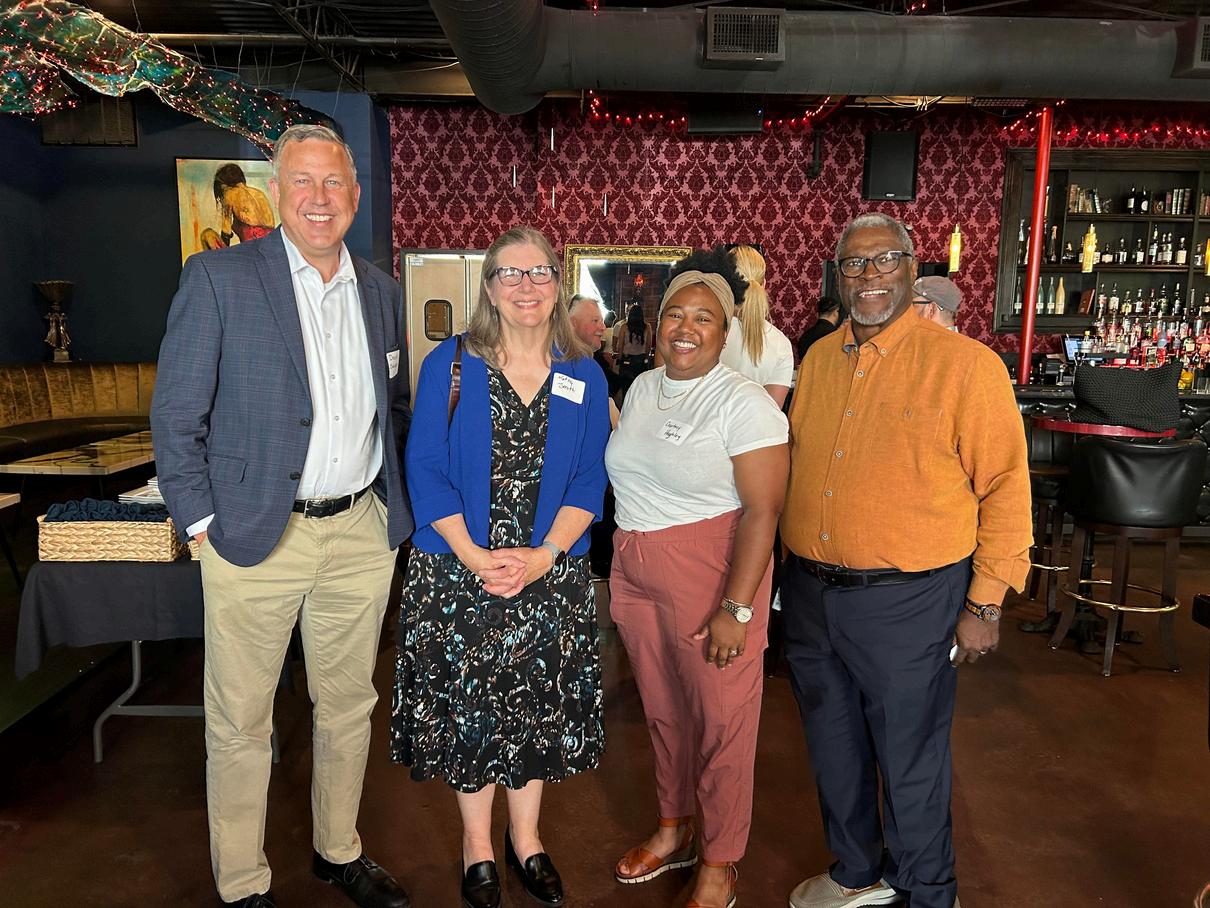
Staff
Dean Johnson, President + CEO
Roosevelt Lyons, Vice President of Advocacy
Lisa Alpert, Director of Communications
Board
Courtney Hughley
Mayor Sylvester “Sly” James
Kathy Smith
Citations
SLU PRiME Center Education Data, 2022
US Census Bureau Public Education Data, 2022
National Center for Education Statistics, 2022
Referenced Media & Editorials
Charter Folk Op-Ed by Dean Johnson, 2022
Missouri Independent Op-Ed by Dean Johnson, 2022
Senate Bill 727 Op-Ed by Mayor Sly James, 2024
Senate Bill 727 Announcement by Missouri Independent, 2024
Quality Schools Coalition Published Materials
Measure What Matters White Paper, 2022
Quality Education Act FAQ, 2023
Parent Resource Guide, 2024
